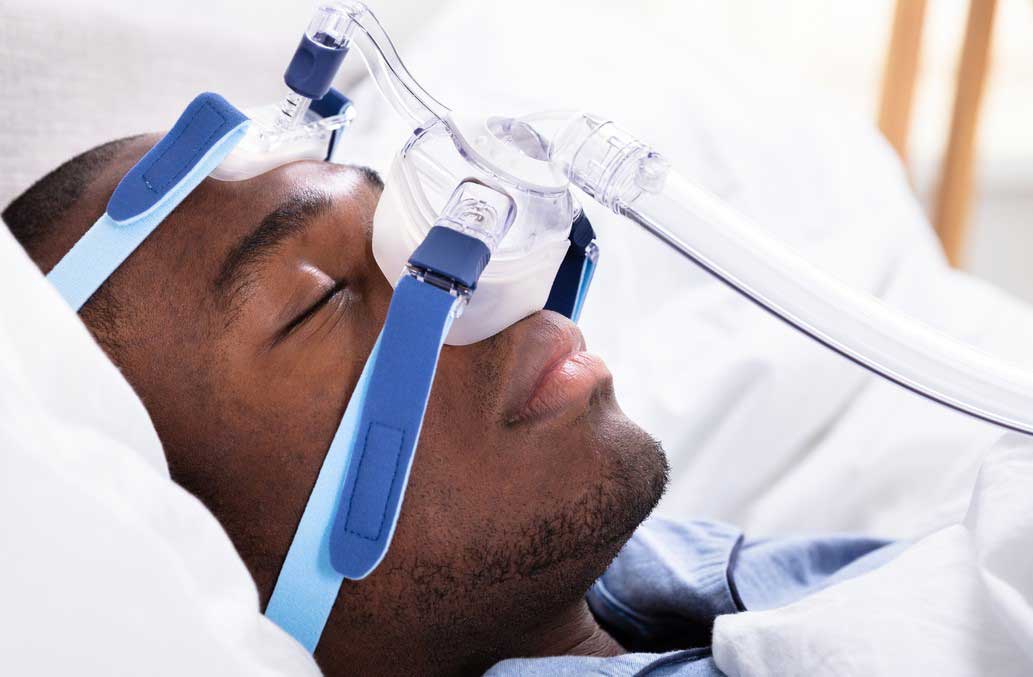The use of non-invasive breathing support, commonly known as CPAP or HFNO, to treat moderate to severe COVID-19 infection, isn’t linked to a heightened infection risk, as currently thought, suggest the findings of two studies, published online in the journal Thorax.
Both assisted breathing methods produced little measurable air or surface viral contamination, and not more than simple oxygen therapy, while coughing produced far more aerosol than either method, the studies show.
The findings prompt the researchers to call for a thorough reassessment of the infection control measures deployed for these respiratory support methods, both of which have been categorised as ‘aerosol generating procedures’ that expose healthcare staff and other patients to heightened infection risk.
Continuous positive airways pressure, or CPAP for short, delivers a steady level of pressurised air and oxygen through a hose and mask to assist breathing; high-flow nasal oxygen, or HFNO for short, pumps oxygen at a high flow rate through two small tubes in the nose.
Unlike mechanical ventilation, which requires intubation and sedation, CPAP and HFNO aren’t invasive. But they are thought to generate viral particles capable of contaminating the air and surfaces nearby, necessitating additional infection control precautions.
These include segregating patients and the use of high-grade FFP3 masks for healthcare workers to curb the risk of aerosol transmission, both of which have implications for costs and capacity.
UK data from 2020 estimate that 17% of all emergency COVID-19 hospital admissions required non-invasive respiratory support or mechanical ventilation.
Environmental contamination with SARS-CoV2 has been widely found in several studies. But very few have specifically evaluated the impact of CPAP and/or HFNO in moderate to severe COVID-19, or have found viable (infectious) virus, confirming a transmission risk to healthcare workers. And other aerosol generation studies have mainly used patient simulators or healthy volunteers.
The researchers therefore wanted to compare the amount of air and surface environmental contamination with SARS-CoV2, the virus responsible for COVID-19 infection, produced by the use of CPAP, HFNO, and simple oxygen therapy, known as supplemental oxygen, in COVID-19 patients.
Thirty hospital patients with moderately severe COVID-19, none of whom required mechanical ventilation, were divided into three groups of 10 and given either supplemental oxygen, CPAP, or HFNO.
Each patient was swabbed for SARS-CoV2, and had three air and three surface samples collected from the immediate vicinity. Positive samples and those suspected of being positive were then cultured for biological viability.
Overall, 21 (70%) patients tested positive for SARS-CoV-2 by PCR swab. But only 4 out of 90 (4%) air samples were PCR positive.
Clinical surfaces were more contaminated than the air samples, and nearly half (14;47%) of the patients had at least one positive or suspected-positive sample for viral particles from one or more of the three surface samples collected.
In total, 6 out of 90 (7%) surface swabs tested positive for the virus: 5 out of 30 (17%) floor samples (another four suspected); no table surface samples (another three suspected) and only one high-object surface sample (three more suspected).
Neither the use of CPAP nor HFNO nor coughing were associated with significantly more environmental contamination than supplemental oxygen use. Of the total of 51 PCR positive or suspected positive samples, only one from the nose and throat of an HFNO patient was biologically viable in cell culture.
The researchers acknowledge that their study included just 30 patients, and larger studies will be needed to reliably inform pragmatic infection prevention control measures around the use of CPAP/ HFNO, they say.
Nevertheless, they conclude: “The evolving evidence from hospitalised patients with SARS-CoV-2 infection and the risks of occupational/nosocomial exposure should prompt an evidence-based reassessment of infection prevention and control measures for non-invasive respiratory support treatments that are currently considered ‘aerosol generating procedures.”
In a linked editorial, accepted for publication in the journal, researchers from the University of Bristol and North Bristol NHS Trust, point out: “This study adds to the mounting evidence that [the aerosol generating procedure] classification is unhelpful in defining risks of transmission.
“It has resulted in over cautious measures for certain settings, mandating full PPE for all intubations and preventing relatives visiting the sickest patients, whilst underplaying risk in others, such as coughing patients with early infection in admissions units or on general wards.
A second study published in the journal also questions whether CPAP and HFNO merit categorisation as aerosol generating procedures.
It compared aerosol production from different oxygen delivery systems among 25 healthy volunteers and 8 hospital patients with COVID-19 infection. Aerosol production was measured while breathing, speaking, and coughing room air and then again while receiving CPAP and HFNO in an ultra-clean operating theatre.
The amount of aerosol produced was highest while coughing; a single cough generated at least 10 times more aerosol than speaking or breathing. Aerosol production wasn’t increased in those receiving CPAP and any aerosols generated during HFNO came from the machine rather than the individual concerned.
The researchers of this study conclude: “In summary, our data...suggest that risk of SARS-CoV-2 infection is not due to CPAP or HFNO generating infective aerosols. This has implications for infection and prevention control policy since aerosol generation appears greatest from patients with COVID-19 who are coughing.”

 CPAP and high-flow nasal oxygen (HFNO) don’t produce more air/surface viral contamination than simple oxygen therapy
CPAP and high-flow nasal oxygen (HFNO) don’t produce more air/surface viral contamination than simple oxygen therapy







.jpeg)
.jpeg)
.jpeg)
.jpeg)
.jpeg)
.jpeg)
.jpeg)
.jpeg)






.jpeg)

.jpeg)
.jpeg)







.jpg)

